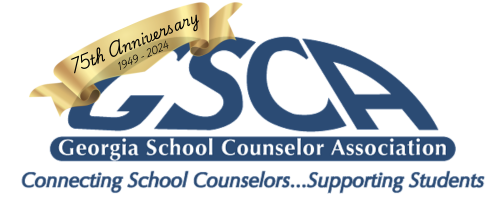GSCA Position Statement: SB 154
This position statement was developed in opposition to SB 154 which was introduced during the 2023 legislative session. The exact language of SB 154 was introduced in March 2021 as Senate Bill 226 and discussed in the Senate Judiciary Committee in their last meeting before Crossover Day 2021 after a substitute drafted overnight moved the bill from Title 16 (Criminal Code) to Title 20 (Education). After four more revisions, SB 226 passed on March 30, 2022, with implementation on January 1, 2023.
In agreement with the Georgia Library Media Association (GLMA), the Georgia School Counselor Association (GSCA) opposes any censorship within school libraries on the grounds that it is unconstitutional, contrary to the professional ethics of educators including librarianship and school counseling, and harmful to students’ emotional health and prosocial development.
GSCA believes that every student should have access to books they may want to read that not only depict stories and characters that represent their own identities but also depict stories and characters of identities and cultures different from their own. Being able to access a diverse selection of texts allows our students to build self-confidence, empathy, and critical thinking skills.
GSCA supports our certified school media specialists’ and librarians’ work in connecting students to materials that fit their needs and interests. In addition, we support the Library Bill of Rights that acknowledges the responsibility to challenge censorship and to work with all persons and groups concerned with resisting abridgment of free expression and free access to ideas (GMLA, GLA 2021).
Georgia school counselors are advocates, leaders, collaborators and consultants who work to provide equitable educational access and success for all students. School counselors demonstrate their belief that all students can learn by advocating for an education system that provides optimal learning environments for all students (ASCA 2016). Censorship of any kind does not provide optimal learning environments or equitable educational access for all students. Censorship of books and texts within the school media center, classroom library, or school counseling library setting can create a harmful environment for students that limits learning. In many cases, censorship negatively impacts students’ individual emotional health by not allowing students to see their unique strengths and personal, cultural, and social assets within texts. It also negatively impacts students’ individual emotional health by impeding their development of self-efficacy, interests, and sense of purpose. Censorship will negatively impact students’ prosocial development by not allowing students to take on others’ perspectives and develop empathy and compassion for other individuals, groups, and cultures.
School districts in Georgia have both selection and reconsideration policies for materials found in school libraries. Concerns about library and classroom/office materials can first be discussed with the school librarian or media specialist; many concerns can be addressed and resolved informally. If no resolution is reached, parents/guardians can follow their local school reconsideration policy and submit a formal request for reconsideration. If there is still concern after the school-level decision, the district procedures for reconsideration appeals should be followed (GLMA, GLA 2021).
The decisions that library media specialists as well as school counselors and teachers make regarding adding and removing materials are based on their district policies and procedures and guided by professional ethics. Support of intellectual freedom, including not allowing personal beliefs to interfere with fair representation of the aims of academic institutions or the provision of access to informational resources, is a major component of those ethical principles.
Threatening school librarians, school counselors, teachers, and other educators with significant fines and jail time of up to 12 months for following their school district policies and professional ethics would create an untenable position for these educators. We have already seen our teachers, school librarians, school counselors, and administrators placed in quandaries in implementation of laws passed in 2022.
Georgia School Counselor Association stands in solidarity with Georgia Library Media Association in opposing any efforts to move from this local community control and opposing any censorship within school libraries.
SB 226
SB 154
